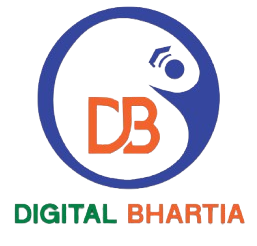Modules of Digital Marketing: A Comprehensive Guide

Introduction
Digital marketing has become an integral part of the business landscape in today’s tech-driven world. It’s a dynamic and multifaceted field that encompasses various modules, each playing a crucial role in reaching and engaging with a target audience. In this article, we will delve into the key modules of digital marketing and explore how they contribute to the success of businesses in the digital age.
Search Engine Optimization (SEO)
Search Engine Optimization, or SEO, is the foundation of digital marketing. It involves optimizing a website’s content, structure, and design to improve its visibility on search engines like Google, Bing, and Yahoo. The primary goal of SEO is to rank higher in search engine results pages (SERPs), thus increasing organic (unpaid) traffic to the website. Key SEO components include keyword research, on-page optimization, link building, and technical SEO.
Content Marketing
Content marketing focuses on creating and distributing valuable, relevant, and consistent content to attract and engage a target audience. Content can take various forms, including blog posts, articles, videos, infographics, podcasts, and social media updates. The objective is to provide information, solve problems, and build trust with potential customers, ultimately driving conversions and brand loyalty.
Social Media Marketing
Social media marketing revolves around leveraging social media platforms like Facebook, Instagram, Twitter, LinkedIn, and TikTok to connect with a target audience. It includes activities such as posting updates, running paid advertisements, engaging with followers, and monitoring social media trends. Effective social media marketing can enhance brand visibility, foster customer relationships, and drive website traffic.
Email Marketing
Email marketing remains a potent tool for nurturing leads, retaining customers, and driving conversions. This module involves sending targeted email campaigns to subscribers or potential customers. It can include newsletters, promotional offers, product updates, and personalized content. Email marketing automation tools help streamline and optimize this process, ensuring messages reach the right people at the right time.
Pay-Per-Click Advertising (PPC)
Pay-per-click advertising allows businesses to display ads on search engines and various online platforms, paying only when users click on their ads. Google Ads and social media advertising platforms like Facebook Ads and LinkedIn Ads are popular channels for PPC campaigns. This module requires careful keyword selection, ad copywriting, budget management, and continuous optimization to achieve a positive return on investment (ROI).
Influencer Marketing
Influencer marketing involves collaborating with individuals or entities who have a substantial online following and influence over a specific niche or industry. These influencers promote products or services to their audience, often through sponsored content. Partnering with the right influencers can help brands reach a highly engaged and targeted audience, building credibility and driving sales.
Affiliate Marketing
Affiliate marketing is a performance-based model where businesses reward affiliates (publishers or partners) for driving traffic or sales to their websites through affiliate links. Affiliates earn a commission for each successful referral. This module is cost-effective and allows businesses to expand their reach through a network of affiliates, often bloggers, content creators, or website owners.
Analytics and Data Analysis
Data is at the heart of digital marketing success. Analytics tools like Google Analytics, Adobe Analytics, and social media insights provide valuable data on user behavior, website performance, and campaign effectiveness. Marketers use this data to make informed decisions, refine strategies, and optimize campaigns for better results.
Mobile Marketing
As mobile devices continue to dominate online traffic, mobile marketing has become crucial. It involves creating mobile-friendly websites, designing mobile apps, and running mobile-specific advertising campaigns. Location-based marketing, SMS marketing, and mobile app advertising are all integral components of this module.
Video Marketing
Video marketing has gained immense popularity in recent years, with platforms like YouTube and TikTok driving the trend. Businesses create video content to showcase products, share stories, entertain, educate, and engage with their audience. Video marketing can boost brand visibility, improve engagement rates, and convey complex messages effectively.
Conclusion
Digital marketing is a multifaceted field, and its modules work in harmony to help businesses thrive in the digital age. Each module plays a unique role in reaching and engaging with the target audience, driving traffic, and ultimately, achieving marketing goals. To succeed in the digital landscape, businesses should adapt and leverage these modules strategically, keeping pace with ever-evolving trends and technologies.
